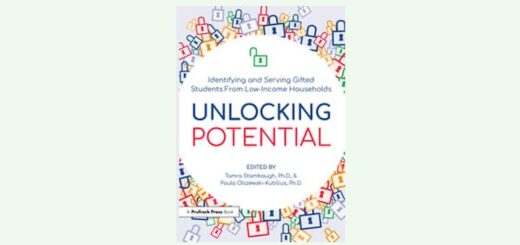High Expectations: What Kids Say
A MiddleWeb Blog

It seems so clear that supporting students on a personal, classroom, and school-wide level all have a key role in guiding all students to achieve to the best of their abilities. My colleague and assistant principal Paul McNeil joined in to share some of his thoughts about school-wide supports.
In this post, I’ve included the rest of my discussion with Paul — and I’ve also gathered some comments about high expectations from a volunteer sample of 7th grade students with a range of abilities and backgrounds. Some are classified with a learning disability–others are not.
What I found, very clearly, is that all students have a firm opinion when it comes to how they learn best. Educators can learn so much when we just listen to what they have to say.

Q: Do you like it when teachers have high expectations?
“I do not like it because then they expect us to be amazing at hard things that we don’t get.”
“I like it because without the challenge, school can get boring.”
“Most teachers will explain things so that we can meet the expectations, but sometimes it feels like they tell us what we have to know and then they move on to something else before we really get to understand the first thing. That makes it tough sometimes. Kids are always going to extra help and we don’t have a lot of time to just sit and eat lunch with our friends.”
“I like lower expectations better because it is easier to get better grades, and if you forget to do your homework, your teacher won’t freak out.”
“It really depends. It can be good because if you’re being challenged, you might do better. But it puts you in a lot of pressure. And if you don’t like pressure, a teacher with high expectations can be horrible.”
“I think the teacher has to take in mind the learning skills of the individual students, and then base the expectations on that. Obviously all kids aren’t going to do as well as other kids. Like if a student has trouble writing essays, the teacher can’t just ignore it and then expect the kid to get a high perfect score like other kids. The teacher has to make sure that the student gets the help he needs before the teacher has those high expectations.”

“I kind of like it, but it gets frustrating. It’s not just the teachers, it’s the New York State. They change the curriculum and act like we are amazingly Brilliant. They think that it’s so easy, but it’s not. High expectations are good, so people will try, but sometimes it’s too much.”
“As a straight A student, people have high expectations for me, and they expect me to be perfect all the time. I take it as a challenge to make me present better work. In order to meet the high expectations, I have to work extra hard. It takes me hours to do my homework. I try my hardest. I like knowing that people think I am really smart, but it is a lot of work. Other times it can be annoying. After getting back a graded assignment, kids ask me to tell them what grade I got. If I get anything less than 100, they hit me with sayings like, “you stink, that’s terrible for you, your mom is going to be so mad.” It’s annoying to deal with that. And other times it is stressful because it’s not always easy to get the highest grades. Kids also always ask me to help them with their work. Sometimes it’s hard for me to get my own work done. I’m OK with teachers having high expectations for me, but it can be annoying and stressful when kids in my classes have high expectations for me.”
These students sure know where things are at! What’s the takeaway here for you?
My Chat with Paul, Part 2: Creating a Positive School Culture
My recent discussion with my colleague Paul McNeil, assistant principal at Nesaquake Middle School, continued around what we do at the school-wide level to help students to embrace the power of high expectations.
In addition to our “Respect All” mindset (shared in my last post), we talked about other ways our school embraces a positive school culture.

(For some background on the ALL IN idea, check out this ESPN video clip. Motivational speaker Gian Paul Gonzalez is a ninth grade teacher in New Jersey who takes his motivational message to schools to inspire students to always put in their absolute best effort in all they do. Deciding what’s good enough and important enough to be ALL IN for is powerfully inspiring. It will make you want to get poker chips for you and your students, put your name on a chip and leave it on your desk for your students to see. That’s where mine is!)
And speaking of PTA and parent engagement…
Paul: Parents are an important factor in the mix of guiding student achievement. We have supports for parents as we evolve to the Common Core. It would be great if parents could spend a half-hour each night to support the homework process. They should make sure that the homework is getting done and that it’s accurate. Parents should be encouraging cultural values, as well as making sure their kids are reading. When they go on vacations, they could make sure to include stops at historical sites to tie in what their kids are learning at school. Parents should share their resources. Getting parents on board is very important in setting positive expectations.
One final question…
Elizabeth: What do you wish could be added as we think about ways to support higher expectations at a school-wide level?
Paul: I would like to include a middle school advisory program. We would steal a little bit of time, about a ten to fifteen minute window, where students share time speaking with an advisor. This would be students in small groups with one advisor. This would be a time where students bring up a difficult time they are having or anything that is on their minds. It would be a great enhancement to our cultural arts and character education programs. The advisors would not just take attendance and stare at each other, leading to this white noise, but rather they would have real conversations. The advisor would lead the conversations from the philosophy of Project Wisdom. It would provide consistent support for all students.
(Here’s a good resource about advisories, reviewed at MiddleWeb.)
Thanks to Paul for inspiring the topic for these posts. These are important discussions that need to happen among teachers, administrators, and students in order for us to meet the needs of all our kids.
What’s happening in your classrooms and schools? How do you translate your conversations into actions?


































